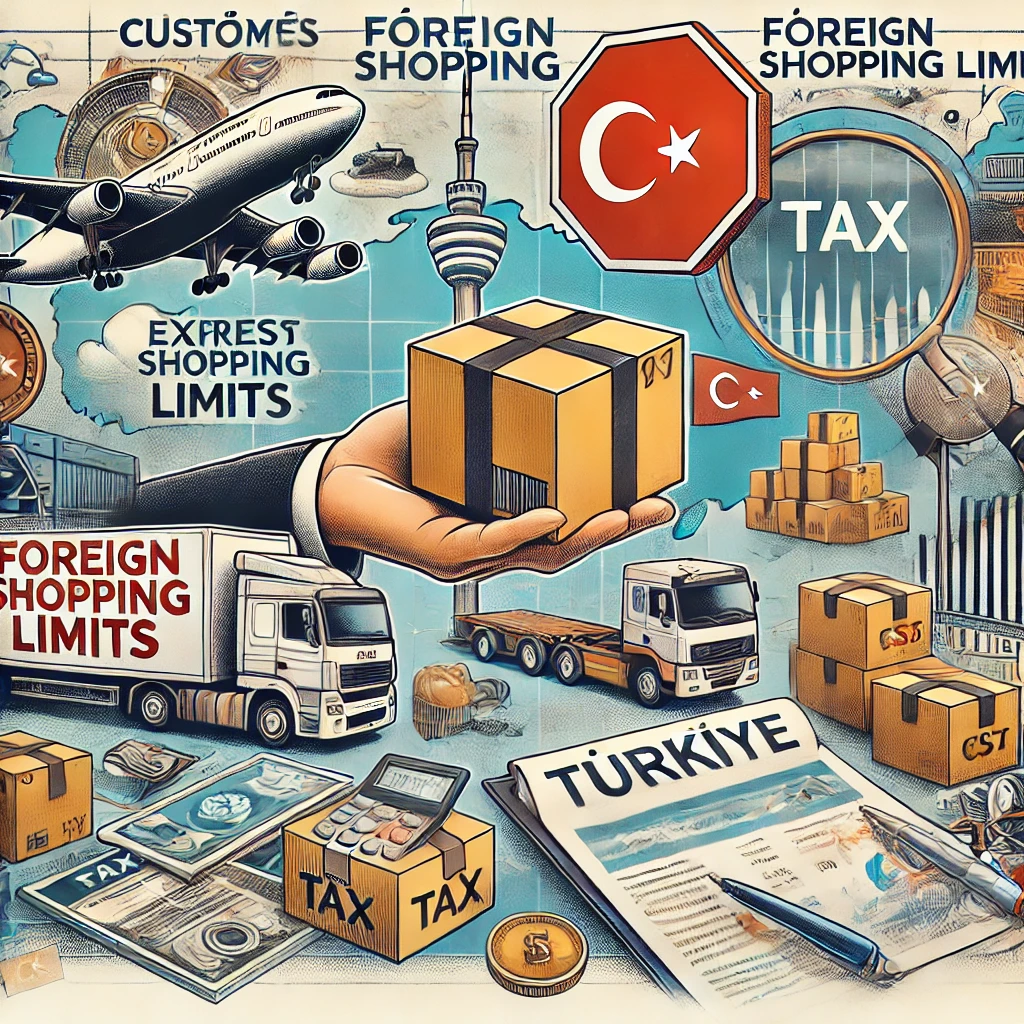Understanding Türkiye's New Foreign Shopping Limits: What You Need to Know
Türkiye has recently implemented significant changes to its foreign shopping limits, reducing the value limit for non-commercial items sent to individuals via international mail or express cargo from 150 euros to 30 euros. This decision, which follows extensive consultations with various stakeholders, has sparked widespread interest and discussion. In this article, we will explore the reasons behind Türkiye’s new shopping limits, the impact of these changes on consumers and businesses, and the broader implications for international trade and online shopping in Türkiye.
Introduction to Türkiye’s New Foreign Shopping Limits
The recent changes to Türkiye’s foreign shopping limits represent a significant shift in the country’s approach to regulating international mail and express cargo shipments. With the value limit for non-commercial items now reduced to 30 euros, consumers and businesses alike are grappling with the potential impact on their purchasing habits and trade practices. This article delves into the reasons behind the new limits, the effects on various stakeholders, and the broader context of these regulatory changes.
Reason Behind Türkiye’s Decision to Impose Foreign Shopping Limits
Addressing Consumer and Business Concerns
The decision to reduce the value limit for non-commercial items from 150 euros to 30 euros stems from widespread concerns among consumers, manufacturers, sellers, and businesses in Türkiye. The Trade Ministry, which played a central role in implementing these changes, highlighted that the influx of low-quality goods intended for commercial purposes via mail and express cargo had led to numerous complaints. These complaints revolved around the negative impact on sales, production, and employment, particularly for small and medium-sized businesses.
Extensive Consultations with Stakeholders
The Trade Ministry emphasized that the decision followed extensive consultations with a wide range of stakeholders, including relevant ministries, tradesmen, chambers of commerce and industry, and consumer organizations. These discussions aimed to address the challenges posed by the growing volume of low-quality imports and to protect local businesses and consumers from the adverse effects of such goods entering the Turkish market.
Mitigating the Influx of Low-Quality Goods
One of the primary concerns driving the new shopping limits was the rapid increase in imports of low-quality goods through international mail and express cargo channels. These items, often intended for commercial purposes, were flooding the market and undermining local businesses. By reducing the value limit, Türkiye aims to curb the influx of these goods, ensuring that imported items meet higher quality standards and do not negatively impact domestic production and employment.
The Impact of New Shopping Limits on Consumers and Businesses
Effects on Consumers
For consumers in Türkiye, the new foreign shopping limits represent a significant change in how they can purchase goods from abroad. With the value limit now set at 30 euros, consumers may find it more challenging to import certain items without incurring higher costs due to the increased tax rates. This change may also lead to a shift in consumer behavior, with more people opting to purchase goods locally rather than through international channels.
Impact on Small and Medium-Sized Businesses
Small and medium-sized businesses in Türkiye are likely to see a positive impact from the new shopping limits. By reducing the influx of low-cost, low-quality goods, these businesses may experience a boost in sales as consumers turn to local options for their purchases. Additionally, the new regulations are expected to level the playing field for domestic producers, who have faced stiff competition from cheaply imported goods.
Nike Suspends Online Sales in Turkey
In response to the increased customs taxes and the new shopping limits, Nike Inc. has suspended online sales in Turkey via its website and mobile app. The company cited concerns about its ability to guarantee timely and smooth delivery of orders as the primary reason for this decision. This move highlights the potential challenges that international brands may face as they navigate the new regulatory landscape in Türkiye.
The Broader Implications of Türkiye’s Foreign Shopping Limits
Impact on International Trade
The new foreign shopping limits in Türkiye could have broader implications for international trade, particularly for e-commerce businesses that rely on cross-border sales. With the value limit significantly reduced and higher tax rates imposed on non-commercial items, businesses may need to reassess their strategies for selling to Turkish consumers. This change could also lead to a decrease in the volume of goods imported through international mail and express cargo channels.
Potential Shifts in Consumer Behavior
As a result of the new shopping limits, Turkish consumers may begin to shift their purchasing habits, opting for locally produced goods over imported items. This shift could benefit domestic manufacturers and sellers, who may see an increase in demand for their products. However, it could also lead to a decrease in the availability of certain international goods, particularly those that fall below the new value limit.
Regulatory Challenges for E-Commerce Platforms
E-commerce platforms that facilitate cross-border sales to Türkiye will need to navigate the new regulatory environment carefully. The reduced value limit and increased tax rates may require platforms to adjust their pricing, shipping, and customer service strategies to comply with Turkish regulations. Additionally, platforms may need to provide clearer information to consumers about the potential costs associated with importing goods into Türkiye under the new rules.
Effective Date and Implementation of the New Limits
Implementation Timeline
The new value limit for non-commercial items sent to individuals in Türkiye via international mail or express cargo will take effect 15 days after the publication of the presidential decree in the Official Gazette. This short timeline means that consumers and businesses will need to quickly adapt to the new regulations.
Adjustments to Tax Rates
In addition to the reduced value limit, the tax rates for non-commercial items sent to individuals and items brought by passengers have also been adjusted. The tax rate for items coming directly from EU countries has increased from 20% to 30%, while the rate for items coming from other countries has risen from 30% to 60%. These changes will also take effect in 15 days, further impacting the cost of importing goods into Türkiye.
Conclusion: Navigating Türkiye’s New Foreign Shopping Limits
Türkiye’s decision to impose stricter foreign shopping limits marks a significant shift in the country’s approach to regulating international mail and express cargo shipments. While the new regulations aim to protect local businesses and consumers from the negative effects of low-quality imports, they also present challenges for international trade and e-commerce. As these changes take effect, consumers, businesses, and e-commerce platforms will need to adapt to the new landscape, finding ways to navigate the reduced value limits and increased tax rates. For more information and to stay updated on the latest developments, visit Travel Guide of Türkiye.
Latest Update: Aug 13, 2024
Your Content Goes Here
A brief summary of the key points in this article.




